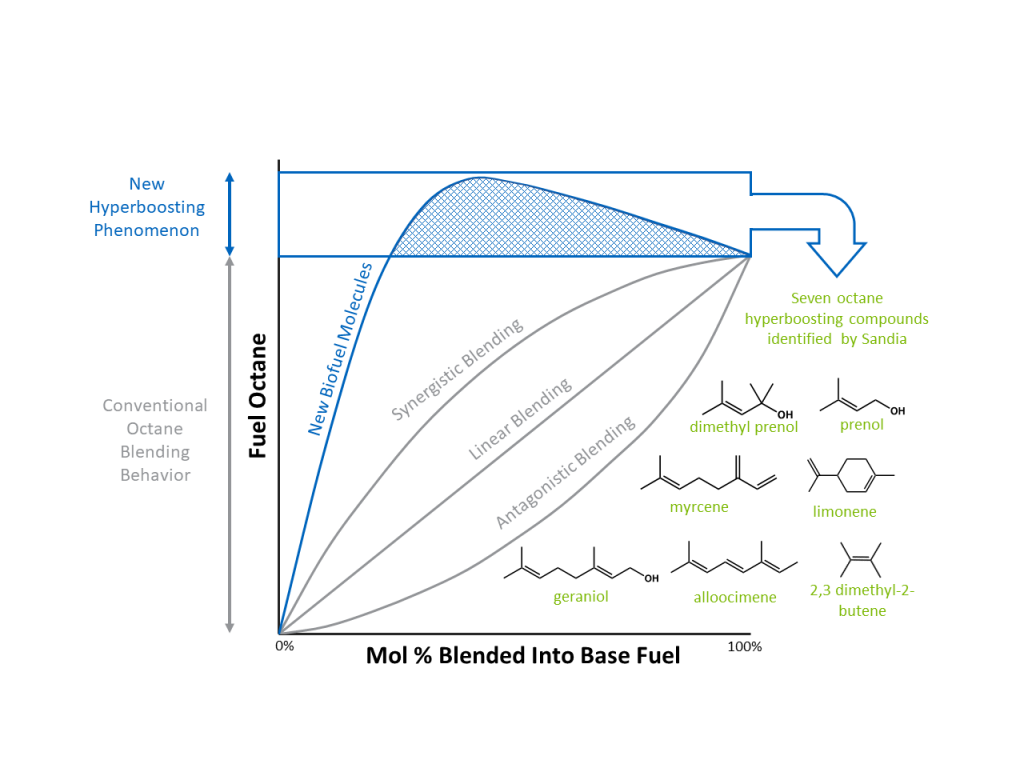Octane Booster
Generate high performance biofuels by optimizing how fuels are blended.
The past century of fuel research was performed under the assumption that the Research Octane Number (RON) of a blended fuel is bounded by the RON values of the base fuel and the additive compound. Researchers at Sandia National Laboratories have recently discovered the phenomenon of octane hyperboosting by producing a fuel mixture with an RON that exceeds that of any individual component. The octane hyperboosting effect will enable existing refineries and prospective biorefineries to optimize high performance biofuel/petroleum hydrocarbon mixtures that will outperform a century of accumulated expectations.
Measurements of mixtures of reformulated gasoline blendstock for oxygenate blending (RBOB) indicates a RON enhancement of the blends that exceed that of both the base fuel and the additive. These experimental results point toward a predictive theory of octane hyperboosting that could have significant impacts on how fuels are blended and the way that RON and Motor Octane Number (MON) tests are used. The findings may also guide the design of new biofuel/bioblendstocks for maximum anti-knock performance. The results also suggest that synergistic blending regimes for oxygenate fuels may be identified that can be used for increasing the efficiency of spark ignition engines, especially in high compression regimes.
- Overall increase in engine efficiency
- Enhanced options for fuel refining
- Extremely high-octane sensitivity
- Low water miscibility
- Similar energy density to gasoline (prenol)
- Biorefineries/refineries
- Biofuel/bio-blendstocks
- Spark ignition engines, especially in high compression regimes

structures of six blendstock candidates that demonstrate hyper-boosting behavior
SD 14559
Published3/21/2022
Last Updated1/7/2025
